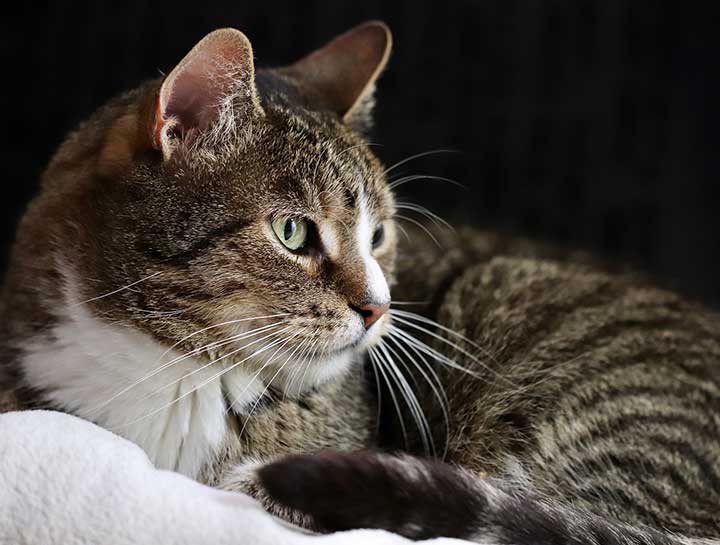“My cat sometimes hides. Should I be worried?”

Hiding is fairly normal, but it can also be a sign your cat’s not doing well
Cats instinctually hide illness and injury, so that makes it even more important to pay attention to their behavior, especially when it changes. Hiding is a behavior that can occur for many reasons, including:
- Illness/injury. It could be any health issue—dental disease, cancer, gastrointestinal problems, heart or kidney disease, or the cat is physically hurt. Cats should always be checked if they suddenly start hiding and the environment has not changed.
- If the cat is in a new place. This is normal, just give your cat a few days to acclimate. A sense of fear is normal when the cat’s surroundings change.
- New people/animals in the house. Again, this is a normal reaction, and the cat may need time to adjust.
When should I be concerned?
When the cat is hiding 24/7 and not coming out to eat, drink or use the litterbox, that means there may be an underlying health condition. At that point, it is important to have your cat checked out by a Cherished Companions veterinarian.
Cats are nocturnal by nature, so if your cat hides during the day and comes out at night to eat and use the litterbox, you don’t need to be as concerned right away.
Is hiding instinctual for cats? Do social or “extroverted” cats also hide at times?
Even extroverted cats like Maine Coons will occasionally hide, especially if in a new place or stressful situation. Again, the main thing to watch for is when they don’t follow their routine and come out to eat or use the litterbox.
In general, there is no breed or type of cat more prone to hiding—but what does matter is how the cat was treated in the past, especially when they were young. For example, if they were feral and eventually tamed, you will find that previously feral cats will hide more than others. If your cat was not socialized with other cats or people when they were kittens, they may also hide more frequently.
How do cats choose where they hide? Should I create a safe place for my cat to do this?
Cats tend to choose places where:
- they feel safest or felt safest in the past
- they’re enclosed on all sides
- they can be in corners, enclosed on three sides looking out
- there are familiar smells (litterboxes, piles of your clothes, warm fresh laundry)
It’s not necessary to create a “safe space”—your cat will find one. However, you can enhance the space of their choice: for instance, if your cat likes a corner in the closet or a perch up on a shelf, put a soft blanket in the spot for them.
What you should not do, however, is put food or water in your cat’s hiding place—you don’t want to create a habit and encourage the cat to stay hidden more than they already are.
Should I try to get my cat out when she/he hides?
Maybe not initially. If they remain to hide for a half day or a full day, then it’s time to check on your pet and try and lure them out. If your cat does come out, but then immediately retreats to their hiding spot, this should raise concern and a visit to the vet is a good idea.
Are there other behaviors that are common with cats when they hide, such as aggression or licking?
Not always. If you do see these behaviors, take note of what may have caused them. For example, if your cat is suddenly acting aggressive, did they perhaps just have an encounter with a new animal?
If you cannot tell why they are acting differently, this is another sign that a visit to your Cherished Companions veterinarian is in order—and don’t forget to tell the doctor about this unusual behavior.
As for constant licking of a certain part of the body, this is a sign in both cats and dogs that they have pain in this location and another reason to visit the vet.
The bottom line with cats that hide is to pay attention to your pet! Don’t hesitate to reach out to us and ask if you have the slightest concern about your feline friend. It’s much better to have the vet tell you there’s nothing wrong than to find out you could have prevented a health problem if it had been detected earlier.
